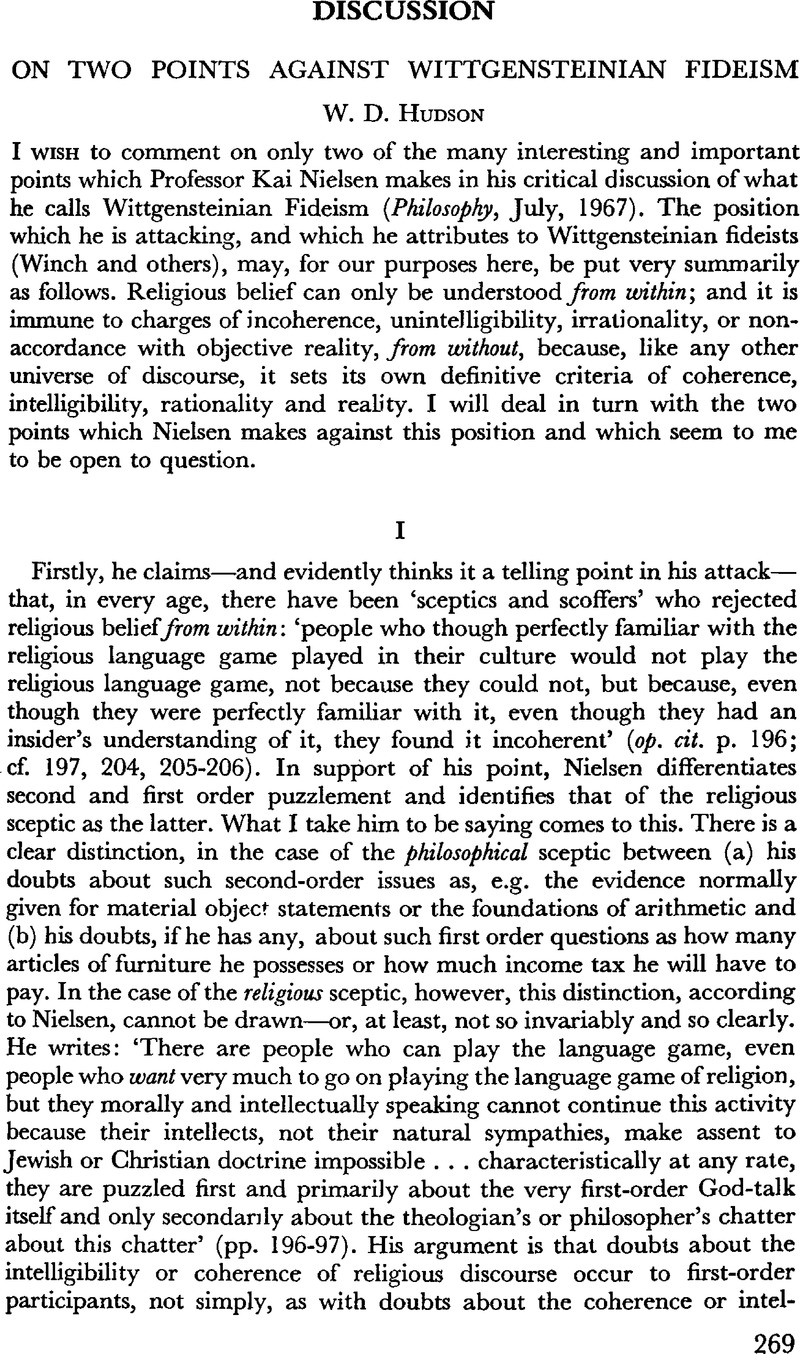Article contents
On Two Points Against Wittgensteinian Fideism
Published online by Cambridge University Press: 25 February 2009
Abstract

- Type
- Discussion
- Information
- Copyright
- Copyright © The Royal Institute of Philosophy 1968
References
1 I have argued myself that God cannot intelligibly be spoken of as a person (in a article on Transcendence in Theology, 03, 1966)Google Scholar. And on the latter concession and claim, cf. A. MacIntyre's remark: ‘Religious believers do know what would have to occur for their belifs to be falsified—they can specify some occurrences with which the existence of omnipotent benevolence is incompatible (“utterly pointless evil” is one commonly used example)’ (in ‘Is Understanding Religion Compatible With Believing?’ Faith and The Philosophers, edited by Hick, John, (London, 1964), p. 130.CrossRefGoogle Scholar
2 I attempt an argument to this effect in my small book, Ludwig Wittgenstein: The Bearing of his Philosophy upon Religious Belif (Lutterworth, London, 1968), pp. 62ff.Google Scholar
- 1
- Cited by


